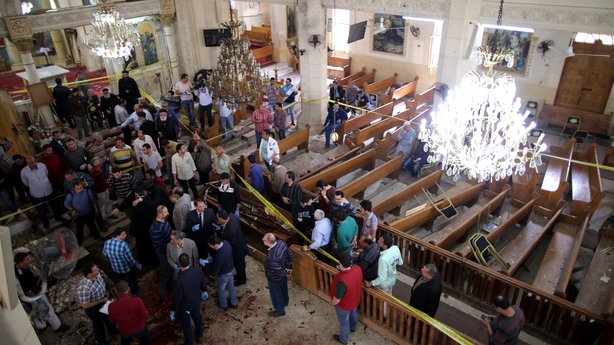Alwaght-Egypt's parliament on Tuesday rubber-stamped a three-month state of emergency, broadening the power of authorities to crack down alleged terrorists’ days after two church bombings killed at least 45.
Two terrorists attacks claimed by ISIS Takfiri terrorist groups at churches in Alexandria and Tanta plunged the nation into mourning and sent shockwaves through a Coptic Christian community that has increasingly been targeted by terrorists..
The countrywide state of emergency was declared by President Abdel Fattah al-Sisi on Sunday after the attacks but required parliamentary approval according to the constitution.
The end of emergency law was a key demand during the 2011 uprising that ousted former President Hosni Mubarak, who had imposed a 30-year state of emergency to crush opposition. The law was lifted after Mubarak stepped down but re-imposed temporarily in the years that followed.
Addressing parliament on Tuesday, Prime Minister Sherif Ismail said the state of emergency was essential to combat what he called terrorist groups bent on undermining the country.
"The emergency law is aimed at enemies of the homeland and citizens, and it will grant state apparatuses greater ability, flexibility, and speed to confront an evil enemy that has not hesitated to kill and wreak havoc without justification or discrimination," he said.
The law's return has ignited concern among some Egyptians, who see it as a formal return to the pre-2011 police state, at a time when rights activists say they already face the worst crackdown in their history.
"By implementing the state of emergency almost all the guarantees that exist for rights and freedoms in the constitution will be halted," said Nasser Amin, head of an Egyptian-run organization working to advance judicial independence.



























